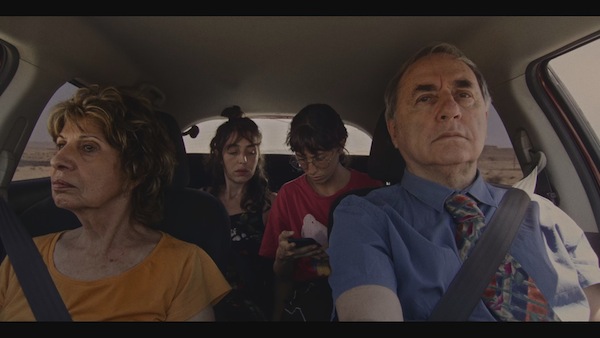I know I have sinned. Haven’t we all? How then to achieve redemption when I have this whole mountain of transgressions looming over me? I can see it clearly every time I look in the mirror. Was it Yogi Berra who said, “Don’t look back, they may be gaining on ya”? Well, I do look back, and I do see the mountain of my failings.
My problem is that I don’t really, really believe that all those things on the pile are so bad. But then I think about “the Judge,” and hope that He is a reasonable entity. Haven’t I all sorts of mitigating circumstances that I could raise to alleviate any judgment? (I know the record in history shouldn’t lead me to be so confident.)
I have read that, in ancient times, He was pretty harsh because He had to be to prove a point. Rules were immutable. Those who erred against His rules were just erased. The earth opened up and swallowed them up. Some were turned to pillars of salt, some swept away by raging waters, impaled on the swords of the righteous who were rewarded, ravaged by plagues or the Angel of Death. All manner of things of a nasty kind were visited upon those who crossed Him. He sure hated to be contradicted.
But Abraham was able to negotiate some matters with Him, and Jacob wrestled with the angel and survived. Job was restored to his honoured state, and Jonah survived his defiance of the Almighty. David was even able to mollify Him in spite of his own heinous crimes, and he retained the honour of having a descendant who would usher in the End of Days.
Surely these are good signs. Why couldn’t I negotiate a soft landing? I have written some poems, like David, and I can’t imagine that my sins approach the gravity of his biggie. What about all my good will, my good intentions, the milk of human kindness that pours from my being – they have to count for something.
OK, obviously I will not be given the right to build the Third Temple in Jerusalem – and I’m not sure that’s a very good idea right about now, anyway. I also will not likely be recognized as a light upon my nation, or any nation. Even though I think some of my doings are worthy and my writings are prophetic and of divine origin. I have tried with all my might to be a hero. (Well, most of the time!)
I will be happy and satisfied if my grandchildren continue to speak to me, or at least say hello. I accept that mine will be a small life. It took me quite a few years to accept that the best things I ever produced were my children. And a great-grandchild! And I can’t even take all the credit for that.
I was hoping I would accomplish more, but I guess my spirit was too weak and small in size. I was hoping I would make some small mark on the wall of time. Now I would be satisfied if I could point to an unsigned abrasion. That’s how it is when reality sets in and we look around us at all the time that has flown. I ask myself, when is it that I will actually begin to do those world-shaking things that I had inwardly resolved, or foolishly promised, to do?
I will have to be content with the derring-do of my children and grandchildren. And my great-grandchild, the beautiful Shaked! Mayhap they will be blessed with those better elements of DNA that did not find their fruition in what I was able to offer.
I look forward to seeing it all when I have passed the final muster. I know I will have a real negotiating job to do. That may be my finest hour. After all, none of us knows the final outcome. Those with the strongest faith and belief carry forward what is essentially a fervent hope. I can join that congregation. I can look forward to the trial that defines my redemption. I can look forward to viewing the future that will become my children’s past. That is worth fighting for with all the heroic energy I can gather.
Whether or not the energy I consist of returns to the vast storehouse from which new lives are dispatched, I know that the DNA I leave behind will not be relegated to dead storage. I retain the hope, as do all who came before me, and follow after, that there are redeeming qualities in what I leave behind, whatever my personal fate.
I know that whatever the outcome for me regarding redemption, there will be some part of me that is reincarnated. We are all blessed by that potentiality. What a glorious vision that presents! I shall hope it is not watered down by my sins. I shall hope that my potentials will not suffer from my bull-headed insistence on attempting to negotiate a private treaty of redemption, that they will not be diluted as a punishment.
Yet, I do still hope to strike a better deal than I deserve for my delays, my prevarications, my impatience with the disciplines of orthodoxy, my confidence that time has tempered the rigidity of Mosaic law. No votes, please – there are so many who would speak out against me and so few to argue in my favour. I confess I have been seduced by the convenience of laxity in the face of strict religious practice.
Perhaps I can find a good lawyer. It is always a great idea to present a good case. I intend to be an active participant in my defence and to energetically press my case. I wonder what the rules are in that court of last resort. I intend to call my children and grandchildren as character witnesses.
Max Roytenberg is a Vancouver-based poet, writer and blogger. His book Hero in My Own Eyes: Tripping a Life Fantastic is available from Amazon and other online booksellers.





